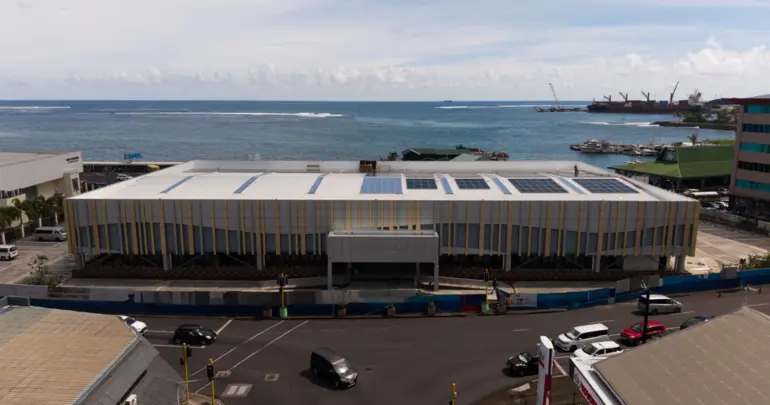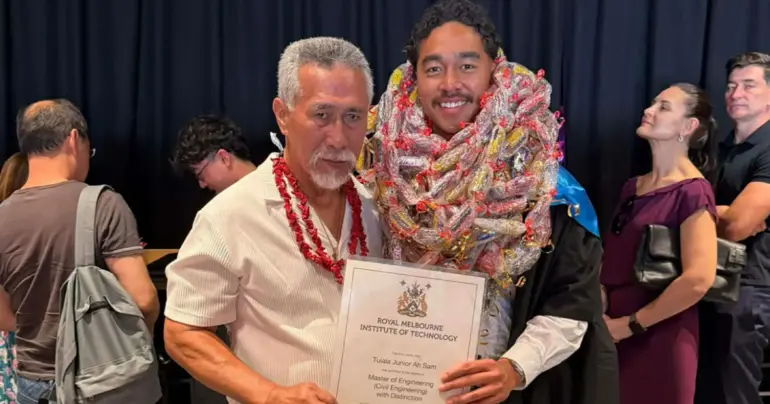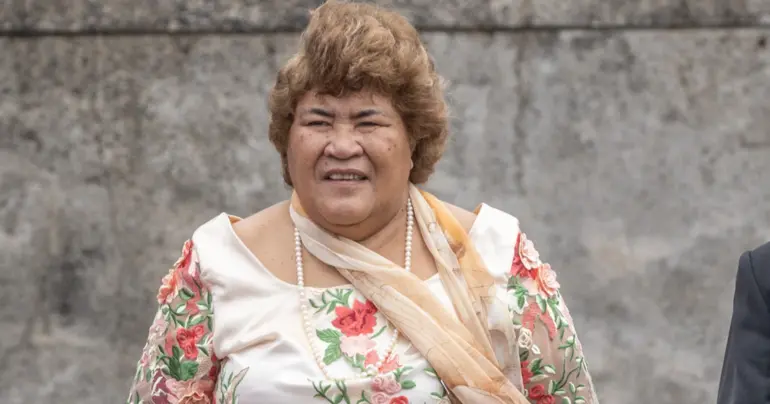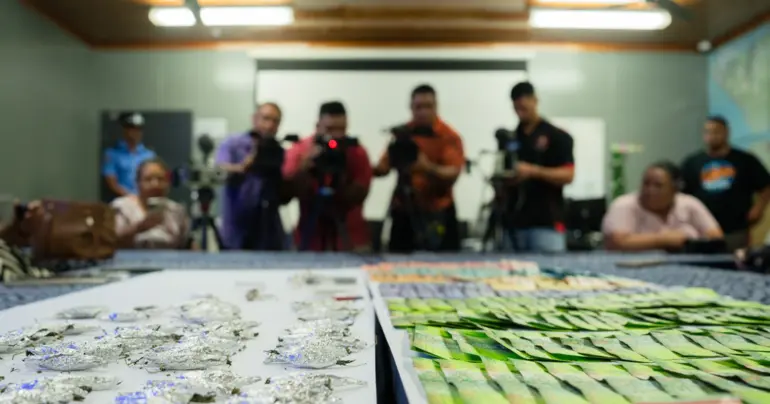U.S. move disappointing – Fiame
The Deputy Prime Minister Fiame Naomi Mata’afa has expressed deep disappointment in the United State’s President, Donald Trump’s annoucment that the his country would withdraw from Paris Climate Change Accord.
Speaking to the Samoa Observer as the Minister of Natural Resources and Environment, Fiame Naomi Mata’afa, is also not surprised that American Samoa’s Congresswoman, Aumua Amata, has backed Trump’s position.
“Aumua Amata is a Republican Congress Woman albeit from an Island Territory,” Fiame said. “So I am not surprised by her position.”
As a leading figure in a country that strongly advocates for the need to address climate change, Fiame believes America should reconsider its position.
“All I can say is to echo the disappointment from world leaders including those from Samoa and the Pacific at the U.S.A’s about face under the new administration,” she said.
But she Fiame also had a message for all the 174 countries who signed the Paris Agreement.
“The important thing is for all the countries who signed the Paris Agreement to move forward on our global response to Climate Change. Hopefully the U.S.A can resolve the issue internally and realign with the rest of the world.”
Fiame’s comments were in response to questions from the Samoa Observer.
In 2015, America had signed the Paris Agreement under President Barack Obama.
But U.S. President Trump has announced the United States will withdraw from the deal.
“In order to fulfill my solemn duty to protect America and its citizens, the United States will withdraw from the Paris climate accord,” Trump said in a statement from the White House Rose Garden.
The move by Trump has been strongly criticized by Pacific Leaders.
Tuvalu's Prime Minister, Enele Sopoaga, for instance ordered his officials to cancel any cooperation with the United States of America calling the country's decision to withdraw from the Paris climate change agreement distressing and destructive.
"I have instructed my officials not to talk any climate change issues with this country until a new policy is put in place," said Mr. Sopoaga told Radio New Zealand.
"I think it doesn't make any sense to talk about any other thing if we don't fix the problem of climate change."
Mr. Sopoaga was one of many Pacific island leaders to react with disappointment and disbelief at President Donald Trump's decision.
"We are very, very distressed," said Mr Sopoaga. "I think this a very destructive, obstructive statement from a leader of perhaps the biggest polluter on earth and we are very disappointed as a small island country already suffering the effects of climate change."
Fiji's prime minister, Frank Bainimarama, who is chairing the next round of United Nations climate change talks in November, said the decision was deeply disappointing for people in vulnerable nations.
"I did what I could -- along with many leaders around the world -- to try to persuade President Trump to remain standing shoulder-to-shoulder with us as we tackled the greatest challenge our planet has ever faced," said Mr. Bainimarama in a statement. "While the loss of America's leadership is unfortunate, this a struggle that is far from over."
The president of the French Polynesian assembly, Marcel Tuihani, also expressed his dismay.
"No electoral promise can prevail over the best interests of all humanity," said Mr. Tuihani. "We regret that the president of the United States has no more consideration for the peoples of Pacific Island states, whose existence is threatened by the effects of scientifically proven climate warming."
Another threatened country, the Marshall Islands, a state in free association with the United States which hosts a military base, also criticised the move. Its president, Hilda Heine, said the decision would have grave impacts, and was confusing for those who supported US leadership on the world stage.
PARIS AGREEMENT
The Paris Agreement’s central aim is to strengthen the global response to the threat of climate change by keeping a global temperature rise this century well below 2 degrees Celsius above pre-industrial levels and to pursue efforts to limit the temperature increase even further to 1.5 degrees Celsius.
Additionally, the agreement aims to strengthen the ability of countries to deal with the impacts of climate change.
To reach these ambitious goals, appropriate financial flows, a new technology framework and an enhanced capacity building framework will be put in place, thus supporting action by developing countries and the most vulnerable countries, in line with their own national objectives.
The Agreement also provides for enhanced transparency of action and support through a more robust transparency framework.











